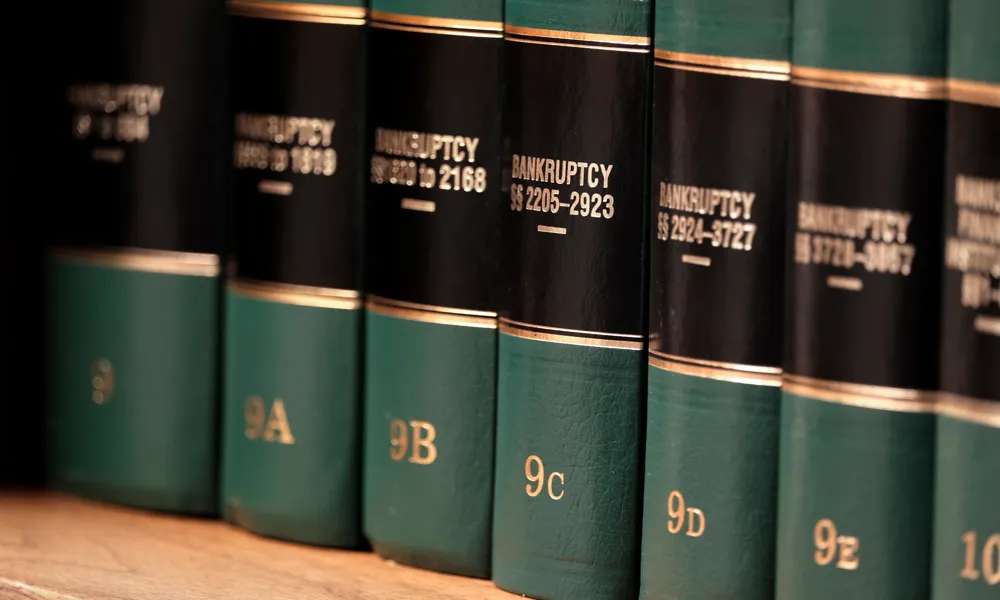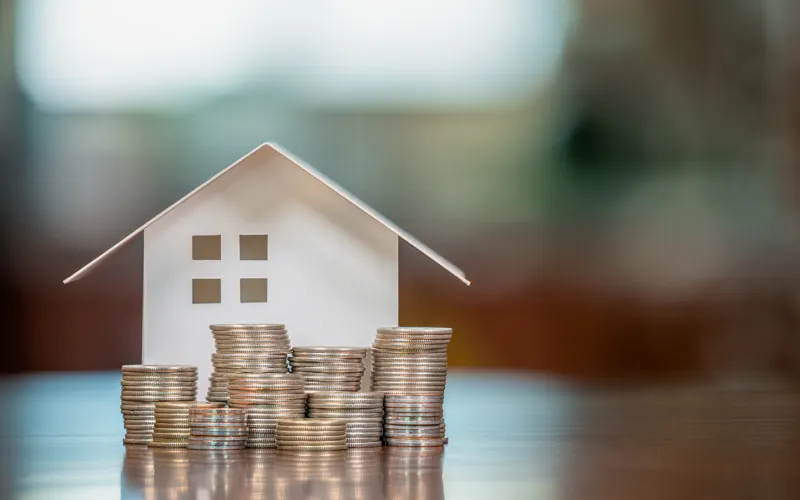
Free Consultation
(702) 565 3060

When you declare bankruptcy, one of the first thoughts that may go through your head is if you can keep your house. This is a common question many homeowners in the bankruptcy process ask themselves.
In hopes of answering this question, we provide information on Chapter 7 and 13 bankruptcy, bankruptcy exemptions, home mortgage, and the homestead exemption. By the end of this article, you’ll be a more confident and prepared homeowner in the face of bankruptcy.
Table of Contents

Chapter 7 bankruptcy is often referred to as “liquidation bankruptcy.” In this process, a court-appointed trustee will be assigned to sell the debtor’s non-exempt assets to repay creditors. However, many states have state exemptions that protect the selling of essential assets, such as primary residence.
In a Chapter 13 bankruptcy, a payment plan to created to pay off the creditors gradually. This period is usually over a three to five-year period, with the plan being tailored to the debtor’s financial situation. In addition, unlike in Chapter 7, individuals filing for Chapter 13 bankruptcy can often keep their assets as long as they keep up on the monthly payments agreed to.
The answer to whether you can keep your house in a Chapter 7 bankruptcy largely depends on the equity you have in the property and the homestead exemption in your state. The homestead exemption is the defined value of the property you are allowed to keep.
The homestead exemption amount varies from state to state, as in Nevada, according to the bankruptcy court, the amount is the first $550,000 of equity you have in your home.
Equity plays a significant role in Chapter 7 bankruptcy and exemption rules. Equity is the market value of your property minus outstanding mortgage payments or liens. However, many states offer homestead exemptions that protect a certain amount of equity in your primary residence.
For example, if your home’s equity falls below the exempted amount, you could be able to keep your house, but on the other hand, if your equity exceeds the exemption limit, the trustee may sell your home to repay creditors.
It’s important before filing bankruptcy that you understand your state’s homestead exemption. In addition, it’s highly recommended to contact a bankruptcy attorney to navigate state exemptions and your specific details.
Unlike Chapter 7, Chapter 13 bankruptcy is the more favorable option for individuals looking to keep their house. As in a Chapter 13 bankruptcy, instead of liquidating assets to repay creditors, you make a repayment plan that is set to repay missed payments our a period of usually three to five years.
Equity works differently in a Chapter 13 bankruptcy than in a Chapter 7. Chapter 13 focuses on following the repayment plan and making regular payments. Here’s how equity comes into play:
Repayment plan – The equity you have in your home will be strongly considered when making a payment plan. The plan will be based on your income, expenses, and the value of your non-exempt assets, including the equity in your home.
Equity and Pay – The equity in your home could affect the amount you’re required to pay in the pay meant plan. If you have a significant amount of equity in your house, creditors could expect a higher repayment amount in your plan.
Your Home – Chapter 13 bankruptcy will allow you to pay your monthly mortgage payments and any missed mortgage payments. As long as you are keeping up on mortgage payments while fulfilling the terms of the Chapter 13 plan, you can keep your house.
Like in a Chapter 7 bankruptcy, it’s important that you work with a bankruptcy attorney during a Chapter 13 bankruptcy process. This will ensure that when you declare bankruptcy using Chapter 13, you will have a payment plan that works perfectly for your situation and allows you to keep up on monthly mortgage payments.

Before you file for bankruptcy as a homeowner, it’s important to understand what bankruptcy Chapter best fits your situation. Various factors, such as your financial situation, income, and amount of equity in your home, come into play while deciding.
Below, we give you a brief guide to help you make a more informed decision:
Regular Income and Mortgage Debt
Situation – You have a regular income and want to keep your house, but you have fallen behind on your mortgage payments.
Reason – Chapter 13 will give you the ability to create a payment plan to catch up on mortgage payments over an extended period of time while retaining your home.
Significant Equity and Valuable Assets
Situation – You have large equity in your home and have possession of personal property with real value or value to you and want to protect it from being sold to repay missed payments.
Reason – Chapter 13 bankruptcy will allow you to retain your assets and your house while repaying debt collectors through a structured plan.
Secured Debts
Situation – You have secured debts like car payments and want to keep your home and other assets when filing for bankruptcy.
Reason – The Chapter 13 bankruptcy plan will address various secured debts while you maintain possession of your assets and home.
Limited Income and Exempt Equity
Situation – You are seeking debt relief with limited income and the equity in your home falls within your state’s exemption limits.
Reason – Chapter 7 bankruptcy can provide you with a quick discharge of unsecured debt and allow you to keep your home if the equity is protected by state exemptions.
Quick Debt Discharge
Situation – You have minimal equity in your home and seek fast discharge of debt.
Reason – Filing for bankruptcy using Chapter 7 is a streamlined process that may discharge eligible debts quickly, making it suitable for those with limited assets and lower equity.
Unmanageable Unsecured Debts
Situation – If your main goal is getting rid of unsecured debt, such as medical bills or credit card debt, Chapter 7 bankruptcy may be the option.
Reason – Chapter 7 bankruptcy is designed to give debt relief and provide you with a fresh start.
If we had to pick out of all bankruptcy laws, homeowners declaring bankruptcy should know it would be the homestead exemption rule. We cover all information for those who are filing for bankruptcy need to know on this bankruptcy exemption rule below.
The homestead exemption will typically only apply to your primary residence.
When you file bankruptcy, the homestead exemption is designed to protect your home from being sold to pay off creditors. However, home equity plays a big part in whether you keep your home or lose it.
Each state will have its own exemption limit that dictates the maximum value of the equity in your home. It’s important to go to your state’s bankruptcy court website to find this value.
Some states will automatically provide a homestead exemption, while others require you to opt in or file paperwork to claim the exemption.

In the bankruptcy filing process, if you are behind on your home mortgage payments and fear for the worse, you should take the following steps:
Talk With Your Mortgage Lender – Reach out to the mortgage company as soon as you fall behind on a mortgage payment. Ensure you explain your situation and ask about possible options or arrangements.
Chapter 13 Repayment Plan – If you are filing a Chapter 13, talk with your bankruptcy lawyer about modifying your repayment plan to include any missed mortgage payments.
Loan Modification – Seek the possibility of a mortgage loan modification with your lender. This might be extending the loan term, adjusting interest rates, or making missed payments more manageable.
Automatic Stay Protection – An automatic stay comes with bankruptcy. This means creditors, including mortgage lenders, are prevented from taking collection actions during bankruptcy, which provides you with temporary relief.
Budget Adjustment – Revise your budget and identify areas where you can cut expenses to prioritize mortgage payments.
If your priority during bankruptcy is keeping your place of living, here are some essential steps to take:
Determine The Equity In Your Home – Calculate the equity in your home. You can do this by subtracting the outstanding mortgage balance from your house’s current market value. This information is crucial to keeping your home.
Consider Filing Bankruptcy Using Chapter 13 – Chapter 13 bankruptcy is a more suitable option for those with a regular income looking to keep their homes. As Chapter 13 works on a payment plan which allows you to keep your house.
Understand Homestead Exemptions – Research the homestead exemptions in your state. These exemptions are set in place to protect your primary residence from being sold to repay creditors.
Stay Current On Mortgage Payments – There’s no such thing as a free house; ensure you pay your mortgage if you seek to keep your home.
Consult With A Bankruptcy Attorney – Consult with a bankruptcy lawyer. You and your lawyer will assess your unique situation, pick the best bankruptcy Chapter, and work to keep your home.
If you want to sell your home during the bankruptcy process, here are some steps to consider:
Contact Your Bankruptcy Trustee – A bankruptcy trustee responsible for liquidating non-exempt assets in a Chapter 7 bankruptcy. Notifying your trustee if you plan on selling your home is important.
List The Property For Sale – Contact a real estate agent to get your property on the market. However, you need to ensure that the sale complies with bankruptcy laws.
Contact Creditors – Negotiate with creditors to determine how the proceeds will be distributed.
Bankruptcy involves stress, legal loopholes, and other nonsense you should not have to bear the weight of. If you are filing for bankruptcy in Las Vegas, NV, contact The Rodney Okano Law Office today; with over 20 years of experience in bankruptcy law, we will handle your bankruptcy case with effectiveness and care.
Ensuring you come out of your bankruptcy case with an improved financial situation. Schedule a free consultation today by calling (702) 565-3060.

Can I file for bankruptcy and still keep my house?

Yes, it is possible to file for bankruptcy and keep your house.

What are the key factors in determining if I can keep my house in bankruptcy?

The key factors include the type of bankruptcy (Chapter 7 or Chapter 13), the amount of equity in your home, and the homestead exemptions available in your state.

What are homestead exemptions?

Homestead exemptions are state-specific laws that protect a certain amount of home equity from being sold to repay creditors during bankruptcy.

What if the equity in my house exceeds the homestead exemption limit?

If the equity in your house exceeds the homestead exemption limit, the trustee may sell the property, use the exempted amount to repay creditors, and return any remaining funds to you.
Read More
Related Articles